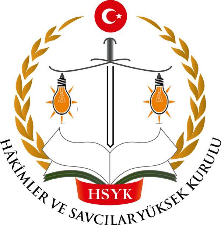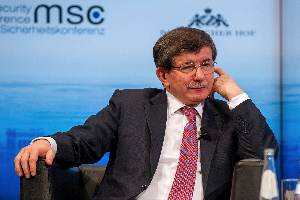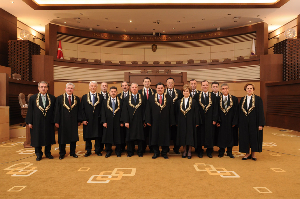Rebalancing the Scales: The Forthcoming HSYK Election
By Gareth Jenkins (vol. 7, no. 16 of the Turkey Analyst)
On October 12, 2014, Turkey’s judges and prosecutors will choose ten members of the Supreme Council of Judges and Prosecutors (HSYK) in an election which is likely to have far-reaching repercussions both for the government’s campaign against followers of the exiled Islamic preacher Fethullah Gülen and the broader issue of political control over the judiciary.

What the Columnists Say
Pro-government pundits have declared the advent of a “New Turkey” after the appointment of Ahmet Davutoğlu as the successor of Recep Tayyip Erdoğan as the leader of the ruling AKP. One commentator described the appointment as one of the most critical thresholds in the realization of the New Turkey project, which is described and celebrated as a comprehensive break with the past century of Turkish history. Dissident commentators warn that Davutoğlu’s vision of a world in which religiously based civilizations clash, and where Turkey aspires to lead the Islamic world, threatens to bring with it cataclysmic effects for Turkey. A more moderate commentator compared the “New Turkey” of Erdoğan to the sheikdom of Dubai.

Looking Strong but Fragile: A New AKP and a “New Turkey”
By Halil Karaveli (vol. 7, no. 15 of the Turkey Analyst)
The appointment of Ahmet Davutoglu to head the ruling Justice and Development Party (AKP) represents a doubling down on the party’s Sunni Islamic ideology. But ideology alone will not be sufficient to keep the AKP in power. The self-confident ideological rhetoric that proclaims the advent of a “New Turkey” masks what is in fact a fragile economic reality. Such rhetoric is not indefinitely going to be a substitute for the kind of material progress absent which the prospects for the “New Turkey” and its power-holders look bleak.

What the Columnists Say
The reactions to the announcement of the presidential candidacy of Recep Tayyip Erdoğan illustrated that there is some anxiety among pro-AKP commentators regarding the future of the ruling party.

The Balyoz Retrial and the Changing Politics of Turkish Justice
By Gareth Jenkins (vol. 7, no. 12 of the Turkey Analyst)
On June 18, 2014, the Turkish Constitutional Court ordered a retrial in the infamous Balyoz, or “Sledgehammer”, case in which 237 serving and retired military personnel were convicted of plotting to stage a coup to overthrow the government of the Justice and Development Party (AKP). The retrial appears likely to result in the acquittal of the accused. However, the timing of the Constitutional Court’s decision has done little to allay concerns about the politicization of the Turkish judicial system.








